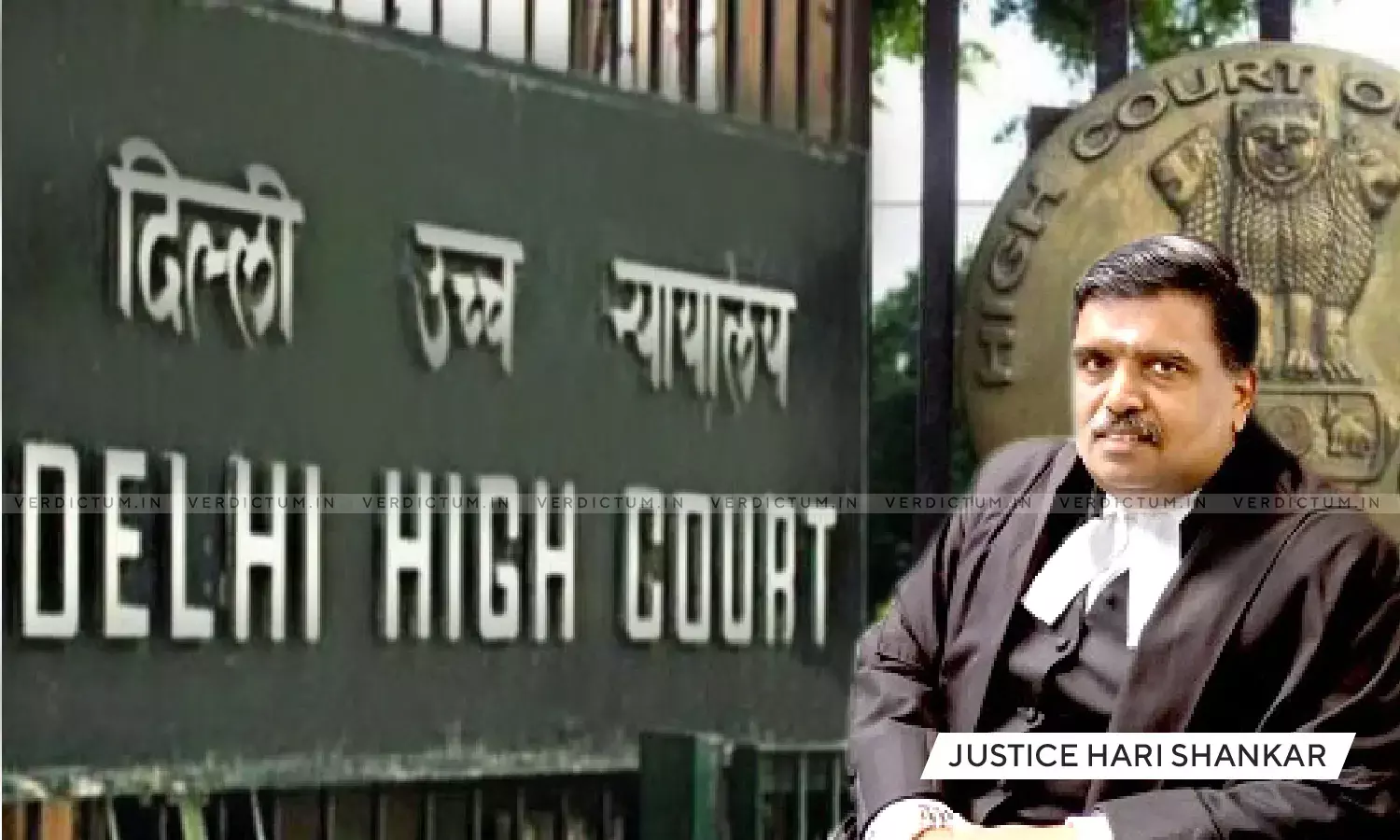Court Should Refrain from Passing Interlocutory Orders Once Arbitral Tribunal Is Constituted Unless It Is 'Demonstrably' Urgent: Delhi HC
The Delhi High Court observed that the Court should refrain from passing interlocutory orders once an arbitral tribunal is constituted, unless 'demonstrably' urgent.
The Court was hearing a petition under Section 9(1) of the Arbitration and Conciliation Act, 1996 seeking pre-arbitral interim reliefs.
The bench of Justice C. Hari Shankar observed, “…once an Arbitral Tribunal is in place, ordinarily a Court should refrain from dealing with the matter even for the purposes of passing interlocutory orders unless the order is demonstrably one which cannot await the application of mind by the learned Arbitral Tribunal.”
Senior Advocate Dayan Krishnan appeared for the Appellant and Advocate Sunita Ojha appeared for the Respondent.
During the pendency of proceedings under the present petition, a three-member Arbitral Tribunal has been constituted and is presently in seisin of the disputes between the Petitioner and the Respondent. Meanwhile, Yes Bank Ltd. has filed an interim application seeking permission to intervene in the present proceedings and requesting a modification of the initial order issued by the Court while issuing notice.
The dispute arose from a contract for four-laning a section of NH 45A in Tamil Nadu. The petitioner alleged that the respondent breached the contract and sought to prevent obstruction of equipment use, ensure settlement of dues to workers and suppliers, and terminate related sub-contracts.
The Court mentioned the decision in Arcelor Mittal Nippon Steel India Ltd v. Essar Bulk Terminal Ltd and quoted, “On a combined reading of Section 9 with Section 17 of the Arbitration Act, once an Arbitral Tribunal is constituted, the Court would not entertain and/or in other words take up for consideration and apply its mind to an application for interim measure, unless the remedy under Section 17 is inefficacious, even though the application may have been filed before the constitution of the Arbitral Tribunal….Even after an Arbitral Tribunal is constituted, there may be myriads of reasons why the Arbitral Tribunal may not be an efficacious alternative to Section 9(1). This could even be by reason of temporary unavailability of any one of the arbitrators of an Arbitral Tribunal by reason of illness, travel, etc.”
The Court said that it may be possible to argue that the Court has already “entertained” the petition before the arbitral tribunal came to be constituted and, therefore, the proscription against the grant of interim relief contained in Section 9(3) would not apply. However, according to the Court, it would be for the respondent, to demonstrably convince the Court that emergent orders on the application are necessary and that the matter cannot await the application of mind by the Arbitral Tribunal.
Accordingly, the Court said that the situation in the present case is not so emergent as to justify a parallel adjudication, by the Court, even while the Arbitral Tribunal continues to remain in seisin of the disputes between the parties.
Finally, the Court disposed of the Petition.
Cause Title: Welspun Enterprises Ltd. v. Kasthuri Infra Projects Pvt. Ltd. (Neutral Citation: 2024:DHC:5244)
Appearance:
Appellant: Sr. Adv. Dayan Krishnan, Adv. Aman Gandhi, Adv. Parthsarathy Bose and Adv. Panchi Agarwal
Respondent: Adv. Sunita Ojha, Adv. Vasudha Priyansha, Adv. Rajat Katyal and Adv. Mayank Punia




